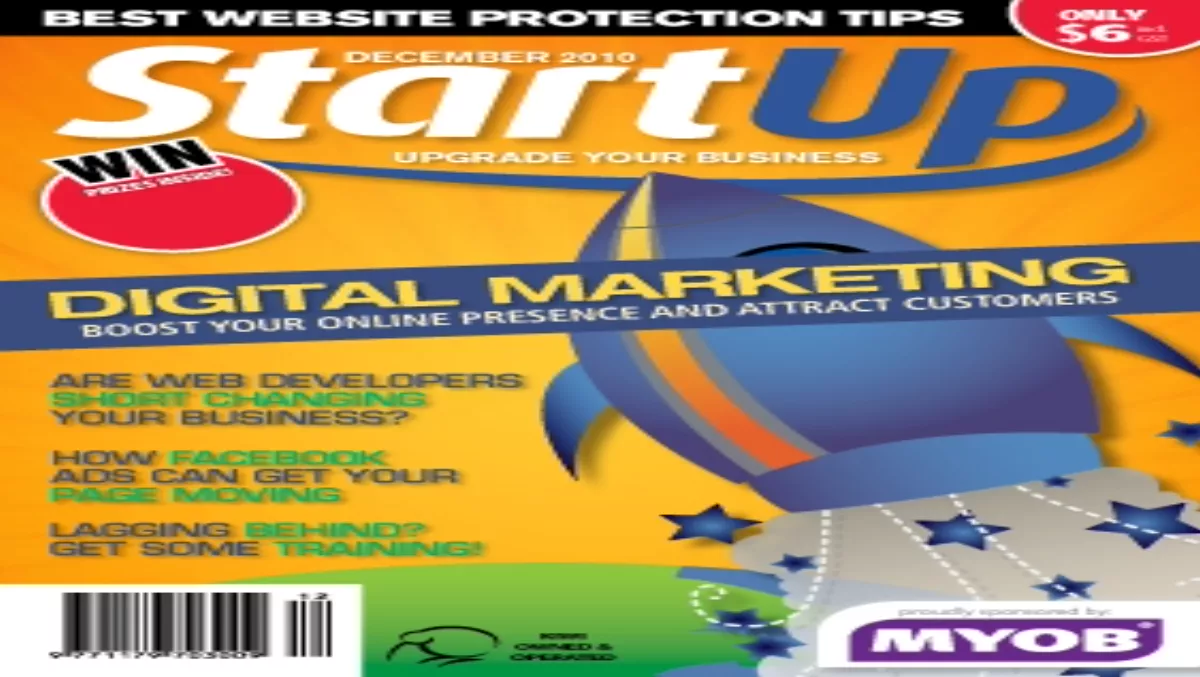Registering your domain name is your first step whenestablishing a web presence, and you need to think carefully about which domainyou use. Search engines like Google offer specific local searches, so if you’rea strictly-New Zealand business, then a .co.nz address will attract the localcustomers. However, if you’re seeking markets abroad, you’re better off goingfor a .com, .net or .org domain. Tim Webb, owner-manager of Perfect ResponseMarketing (www.marketingnz.org),suggests you register all three, to ensure someone else doesn’t grab your namein a different domain, and register another domain containing a keywordconcerning your business (eg: www.fancyshoes.net). Domainz (www.domainz.net.nz) is the best knownlocal domain registry, but other registries like GoDaddy (www.godaddy.com) offer discounted rates. Webb says that extrapresence will get you noticed better by search engines. For that reason it’salso best to register for at least three years.
It’s easy these days to get a website built for nothing.Reuben Jackson is CEO of Website Builder (www.websitebuilder.co.nz),which offers DIY website building using templates to which you just addcontent. You pay for the hosting and any special bells and whistles you want,and you’re online. You can then go back and update the content when you like.Website Builder offers training on how to do this. But before you do anythingelse, you need to get your content sorted - words and images.
To get your website started, just sit down with some paperand do a rough sketch of how you want it to look. You’ll need to give adeveloper a good idea of your vision, if you’re going to get a sitecustom-designed, but even if you’re shopping with a DIY provider like WebsiteBuilder, it helps to be clear in your own mind just what sort of look you’reafter when you’re browsing through the templates. Aim for six pages initially,to cover your front page, some general content, plus your About and Contactpages.
"You’ll make an efficient design process if you’ve got yourcontent written,” Jackson says, "because the content will dictate yournavigation and your photography will aid your design process. If you have yourphotography and your content sorted, the rest will follow very easily.”
Think carefully about any special features you want on yoursite. If you’re a motel or a fitness instructor, you may want to acceptbookings online. Such features are available as plug-ins and are easy to add.Above all, you must be certain what you want your site to do: where yourcustomers are located and what you want to offer them when they get there.
Despite the popularity of DIY site building, some marketingexperts are sceptical about this approach. They believe such basic, genericdesigns are a turn-off, and that web users are more attracted to sites that aredifferent, quirky and interesting. Spending a bit of money to get somethingunique, which reflects your character, may be better in the long run. Be sureyour developer understands your priorities, and get written quotes for theirwork.
For tips on the important things to do immediately afterlaunching your website, go here.
Early in 2011, business solutions provider MYOB will belaunching a website building tool for small businesses.
"Because Kiwis find it really difficult to get a website upand running, we’re going to create a website building tool which allows you toget a really good quality website up and running in under five minutes,” saysMYOB’s New Zealand General Manager, Julian Smith. See here for developments.
The December issue of Start-Up is packed with advice andtips about the best way to get your website noticed and attract customers. It’son sale from Monday, November 29th at good magazine stores, or tosubscribe, click on the Subscribe Now button at the top right-hand side of this page.


